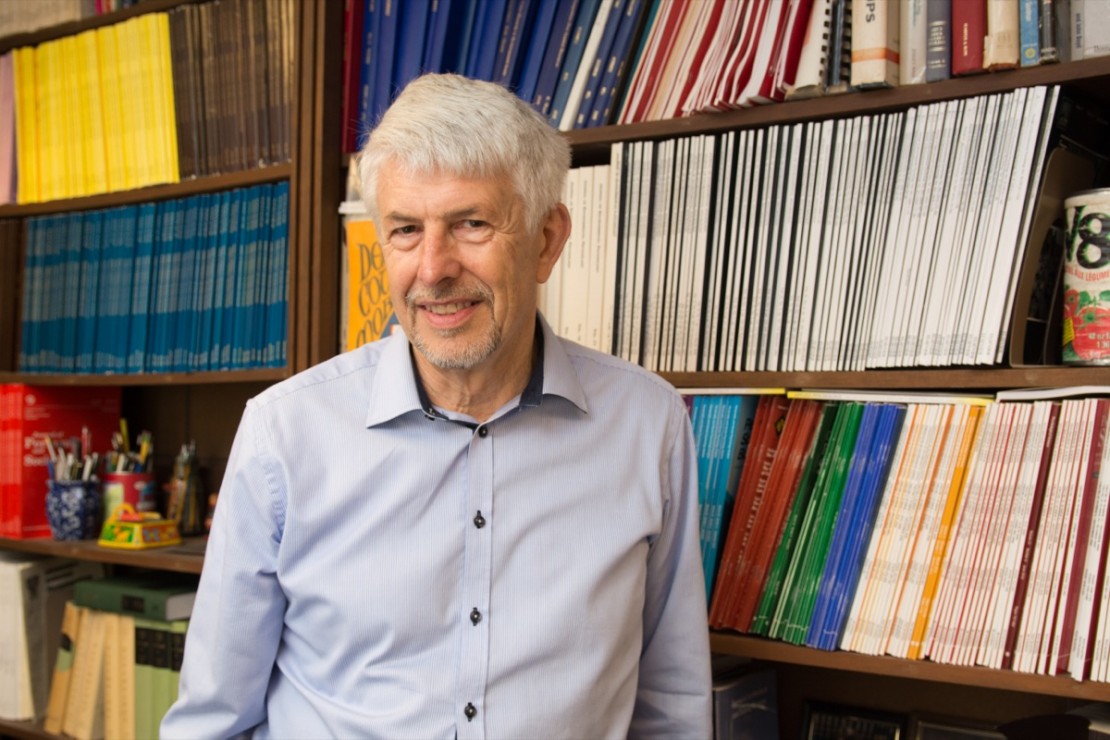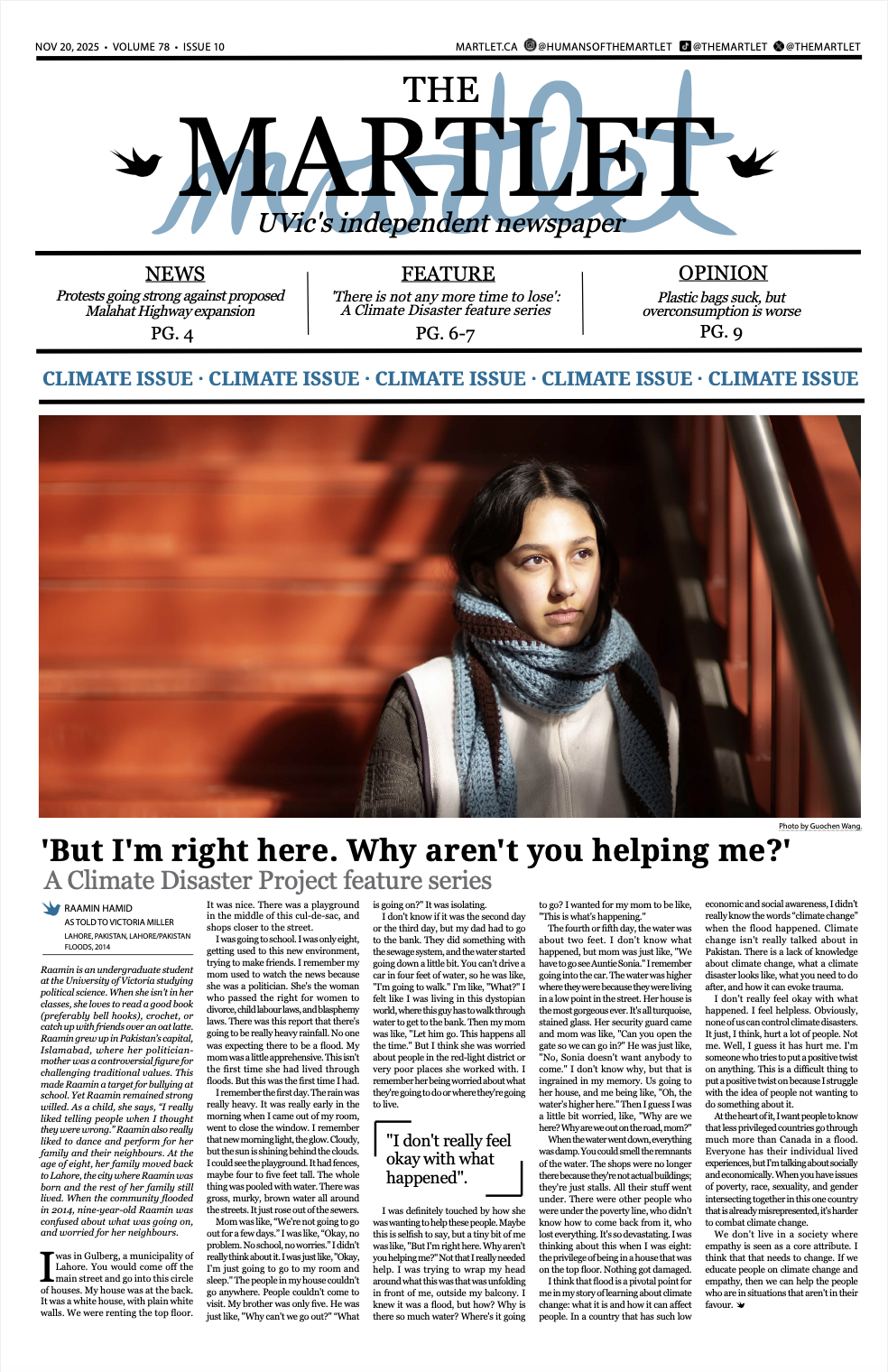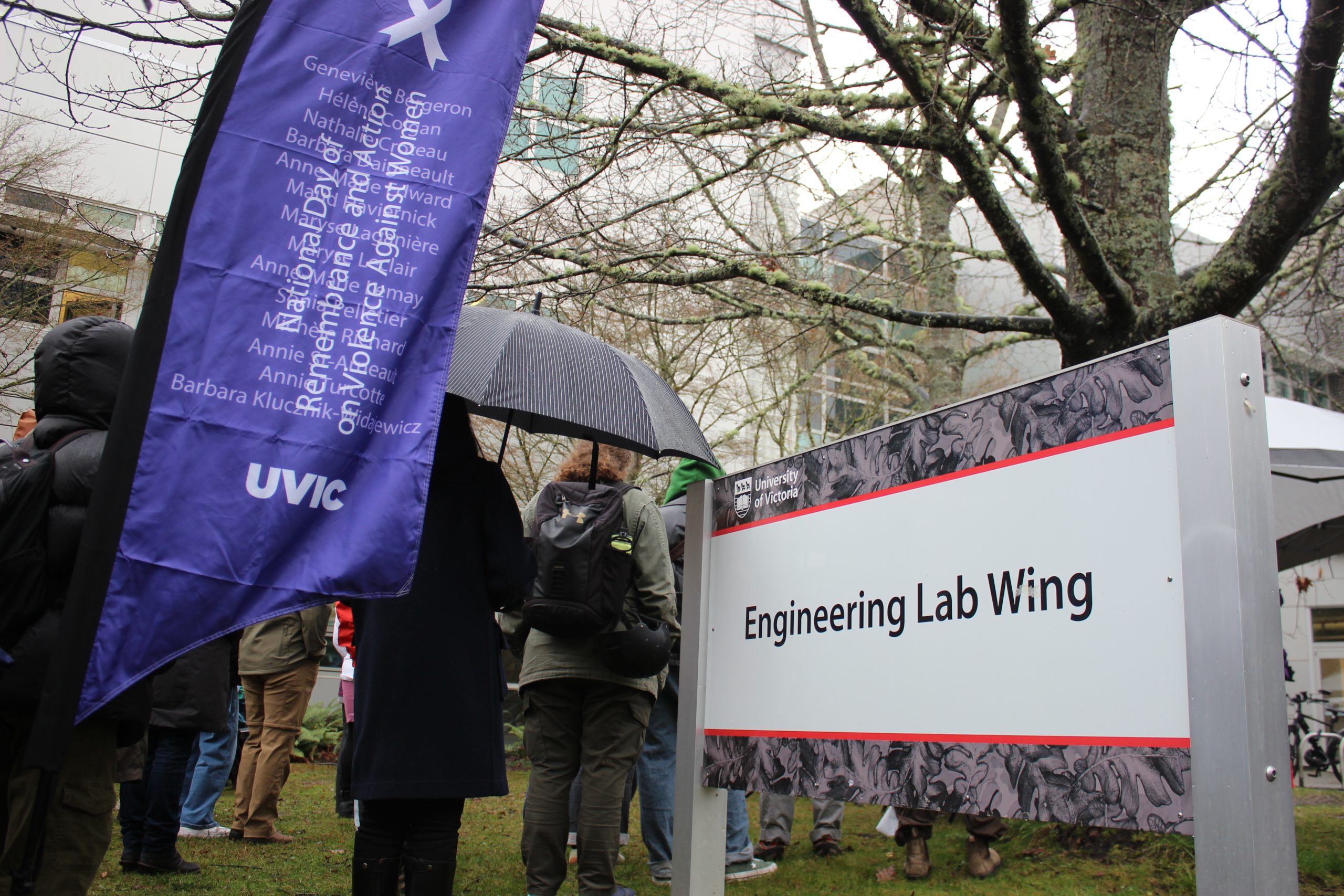
Dr. Robert Gifford is a pioneer in environmental psychology, the interaction between people and their physical environment. –Hugo Wong (photo)
The world is facing a major ecological crisis in climate change, yet very few seem fazed by it. Dr. Robert Gifford, a professor of psychology and environmental studies at the University of Victoria, wants to know why.
With a grant from the Social Sciences and Humanities Research Council (SSHRC), he is continuing his research into the psychological issues that influence apathy on climate change, and what might make the public take notice.
While the theory of anthropogenic, or man-made, global warming (AGW) is well supported by scientists, there is no shortage of doubters, particularly in the United States. Despite one study showing 97.2 per cent of articles and authors endorsing the position of anthropogenic global warming and another literature review showing that only 26 of 25 182 scientific papers explicitly denounced the idea of AGW as of 2014, polls from both Yale and Gallup show that only a third of Americans are concerned, and that it ranks the lowest on a list of environmental priorities.
[pullquote]Gifford thinks that people “generally accept the reality of climate change, but still can’t turn their intentions or their beliefs into actual action.”[/pullquote]
According to Gifford, there are many cognitive biases that inhibit people’s action on climate change, which include superficial thinking, unwarranted optimism (the assumption that future technology will solve climate change in the nick of time), and peer influence, biases that he calls “dragons of inaction”. When asked to clarify the term by email, Gifford said it was a play on words; deniers being a “drag on” pro-environmental action.
“We are all influenced by the people around us, and if we happen to be surrounded by people who have apathetic or antithetic views about climate change, they’re going to tend to influence us.”
One “dragon” is uncertainty. In an experiment, Gifford presented a simulated ocean habitat to subjects, and told them that he was uncertain if there were 10 or 15 tons of fish left in a hypothetical ocean. When asked to guess, participants were more inclined to believe the higher number.
“So how this translates to climate change is that if not every scientist is convinced…well then ‘I’ll wait until it’s 100 per cent before I do anything because I want things to be sure before I invest some effort,’” said Gifford.
As for practical solutions, researchers look for what motivates people. For example, one of Gifford’s colleagues, Lorraine Whitmarsh, surveyed English cyclists passing through central London’s toll booths on bikes instead of cars. While she expected the cyclists to say they were doing it for the environment, practically all of those surveyed said they were cycling for their health, or to save money on tolls and parking their cars in central London.
Just as peer pressure works can induce environmental apathy, peer groups can affect pro-environmental change as well. For instance, a study found that residents in a cul-de-sac were more likely to install solar panels in response to their neighbours than residents on a long open-ended street, just because those in a cul-de-sac had a better view of their neighbours.
For Gifford, increasing public awareness means discovering what speaks to different individuals or groups.
“You want to segment the population based on their values and beliefs . . . the principle is ‘What’s important to this person?’ Talk to that.”








